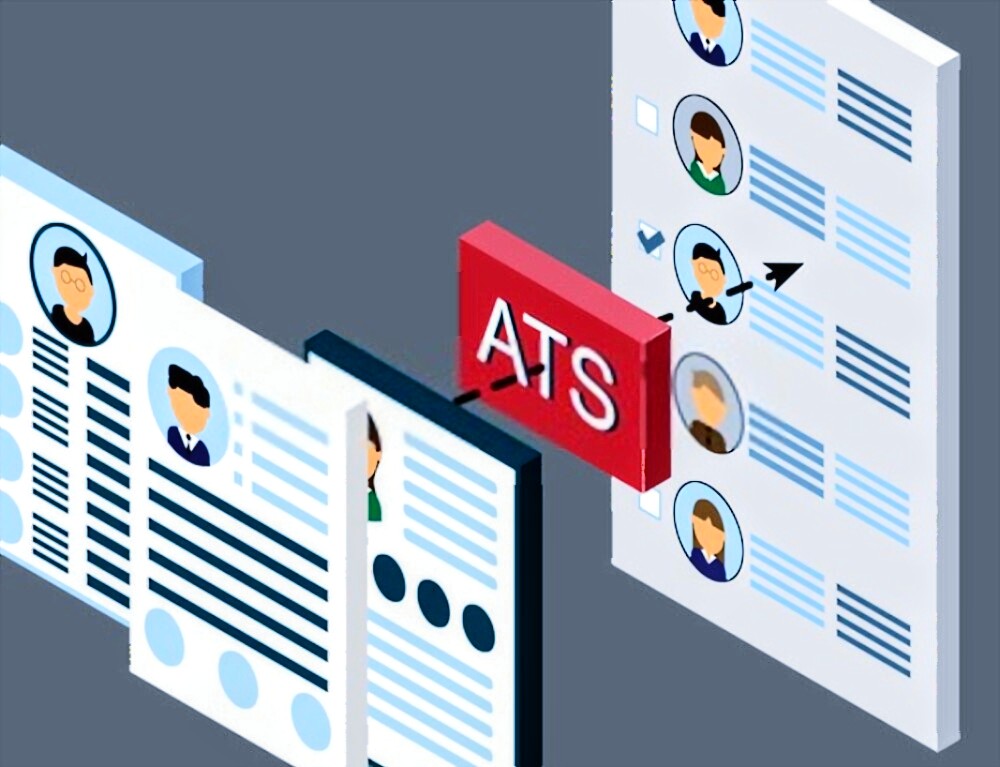Many job searchers are unaware of what an applicant tracking system is or how important it might be in helping them eventually land the position.
The applicant tracking system is a piece of hiring software that enables businesses to speed up the hiring procedure. The software enables the recruiter to swiftly pick out the top candidates from a vast pool of applicants for a job posting.
The laborious and time-consuming procedures involved in hiring, reviewing resumes, classifying applications, arranging interviews, and monitoring performance indicators, are part of the reason recruiters have found it easier to use the application tracking system because it is now automated on the software.
Additionally, by minimizing manual labour and offering a productive means to track candidates throughout the whole recruiting process, the applicant tracking system aids organizations in cutting costs related to hiring.
In this article, I will point out the tips you can use in passing the applicant tracking system on your journey of job search.
Table of Contents
How to Optimize Your Resume for the Applicant Tracking System
Job application can be challenging, especially when you have to go through an applicant tracking system.
The applicant tracking system is programmed to scan and evaluate resumes based on keywords, phrases, and other criteria. To ensure your resume makes it past the applicant tracking system into the hands of a hiring manager, you need to know how to optimize it.
Read Also: How To Write a Professional Resume for Job Application
Listed below are some tips on how to optimize your resume for passing an applicant tracking system test:
-
Your resume’s contact information should be succinct
It should be one line long to preserve space for crucial information in your other resume sections, such as your professional experiences, credentials, etc.
Only include the company’s required information, avoid going too far, and keep it brief!
-
Label the sections intentionally
To pass applicant tracking system tests, Include a brief qualification or a specific term to frame your experience.
When describing your relevant professional experience, you can just write “Marketing Experience” if you’re seeking a career in marketing. Make sure everything you write on your CV is deliberate.
It usually results in the development of a stronger application.
-
Utilize terms or keywords
You get fewer or no interviews without keywords. It is your responsibility to convey that you are capable of handling the duties of the position and delivering quality work.
You must include in your translation the pertinent resume keywords that are particular to your job role and necessary talents.
You won’t get as many interviews from the businesses you’ve applied to if you don’t include these prerequisites on your resume.
Read Also: Common Nigerian Job Interview Questions and Answers
-
Add more professional experience
Do this only if it is pertinent. You might be better off leaving anything off your resume if you can’t in any way make it relevant.
However, as a job seeker, you may have experiences outside of the workplace, such as volunteer work, extracurricular activities, academic work, certifications, internships, and training.
If it is suggested that you add these experiences, add them if they demonstrate relevance to a job description requirement only.
Read Also: How To Gain Work Experience as a Nigerian Student
-
Mention any relevant skills
Your talents as a job applicant should be well-rounded and transferable in order to make your application competitive. Job searchers who are less competitive have fewer and more generic talents that hiring managers can find from just about anyone.
Use any other relevant, uncommon skills to your advantage if you have them.
Read Also: Top 10 Skills To Put On A Resume That Will Boost Your Hiring Chances
-
Keep your resume concise
Regardless of experience level, a page resume is always preferred. You won’t require more than one page if you’re solely mentioning pertinent experience.
The hiring manager can also see your degree of proficiency because of how brief and straightforward your application was. Being brief and well-written makes it easier to read for both the Applicant tracking system and a human reader.
-
Write for the hiring manager that will eventually read it
Remember that other people besides an applicant tracking system will read your resume when you’re writing it. A recruiter will analyze your resume after it has passed through the applicant tracking system and determine whether you are a qualified candidate.
As a result, while it’s crucial to include applicant tracking system keywords in your resume, you also need to make sure that it’s readable and truthful.
This entails being honest about your abilities and expertise and refraining from overusing keywords in your resume.
To get useful content like this Connect with us on Instagram
-
Avoid using inventive resume writing techniques
An applicant tracking system can read a simple design more easily, and recruiters can scan it more quickly.
The use of photos, graphs, tables, and charts should be avoided because they are challenging for applicant tracking systems to comprehend and understand.
Instead, concentrate on giving the system information that is simple to interpret and clear-cut. People who evaluate resumes may find them confusing and frustrating if they are overly cluttered or have an odd format.
-
Be unique when writing your resume
When preparing your CV, stand out from the crowd by not employing the same old template that everyone else does.
Spend some time making your resume unique and personalized. Your resume should focus on showcasing who you are and your strengths.
-
Edit the text to raise its calibre
Make sure it is free of grammatical and spelling issues, and use clear, succinct wording.
You may simply check your resume for grammar mistakes on a number of websites, including Grammarly. You may also ask someone else to review your work for you.
Conclusion
One of the most important steps in the job application process is passing the applicant tracking system test. Knowing how to successfully pass an applicant tracking system test and submitting your resume using best practices is crucial. Utilizing the aforementioned tips can give you a fighting chance while applying for jobs by passing the applicant tracking system test and helping you get the positions you want.
Did you find this Insightful? Join the insight Whatsapp community for updates on new and similar content
About Author
- Mercy is a writer at Insight.ng. She writes SEO content, and her articles are engaging, informative, and easy to read. Her interests span Lifestyle, traveling, career and Technology.
Latest entries





